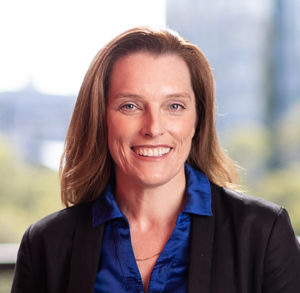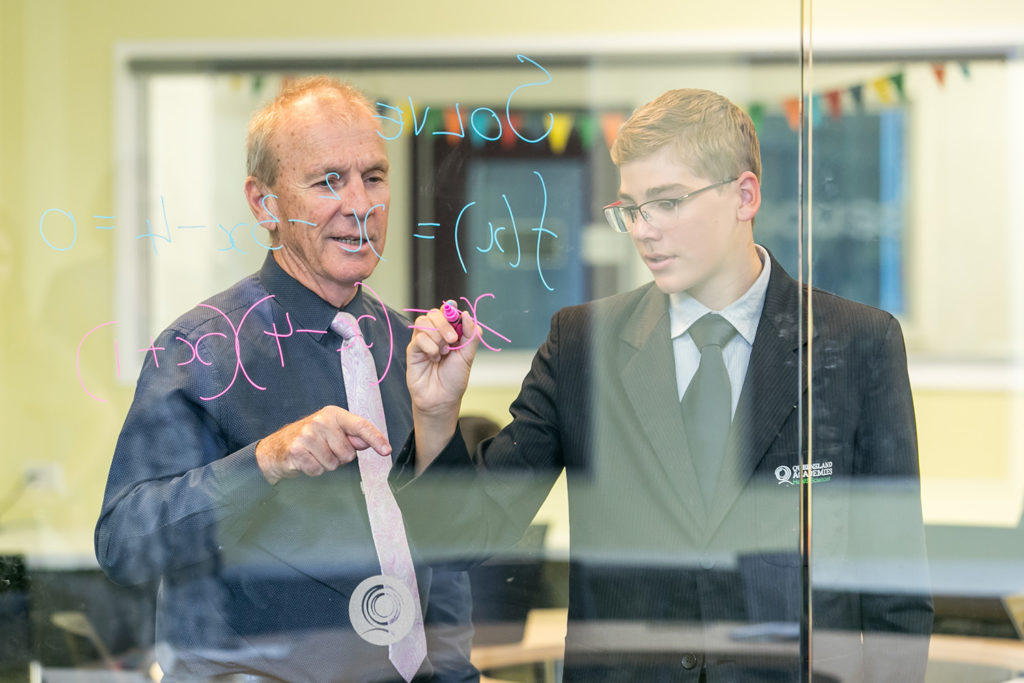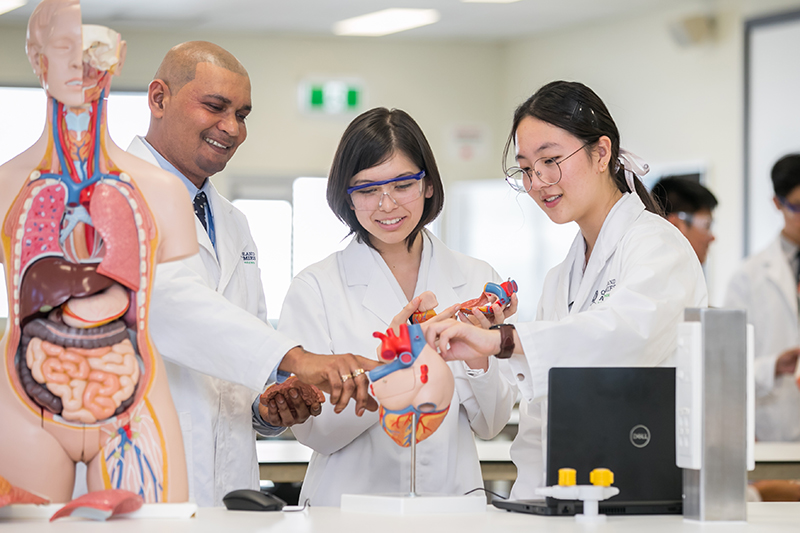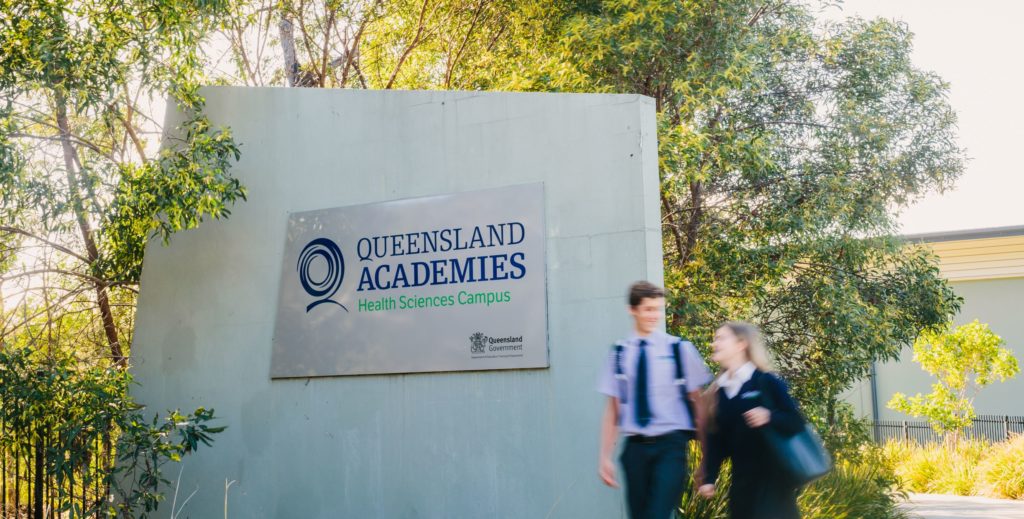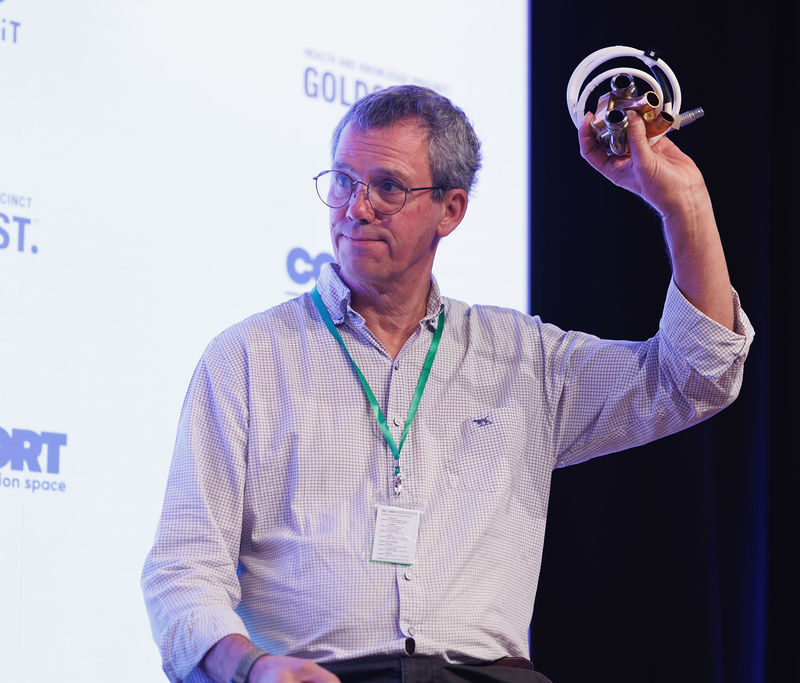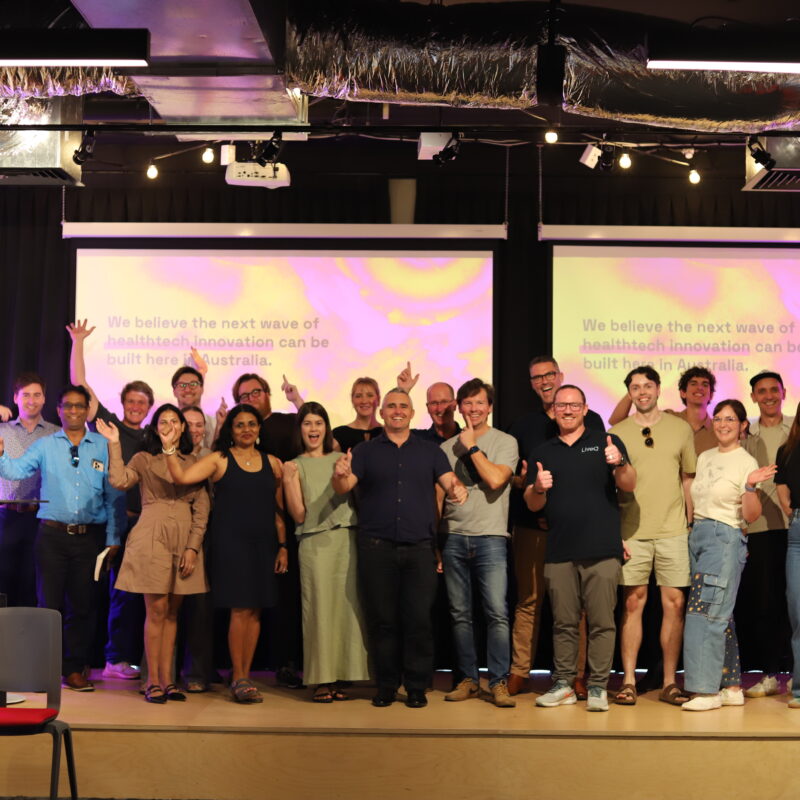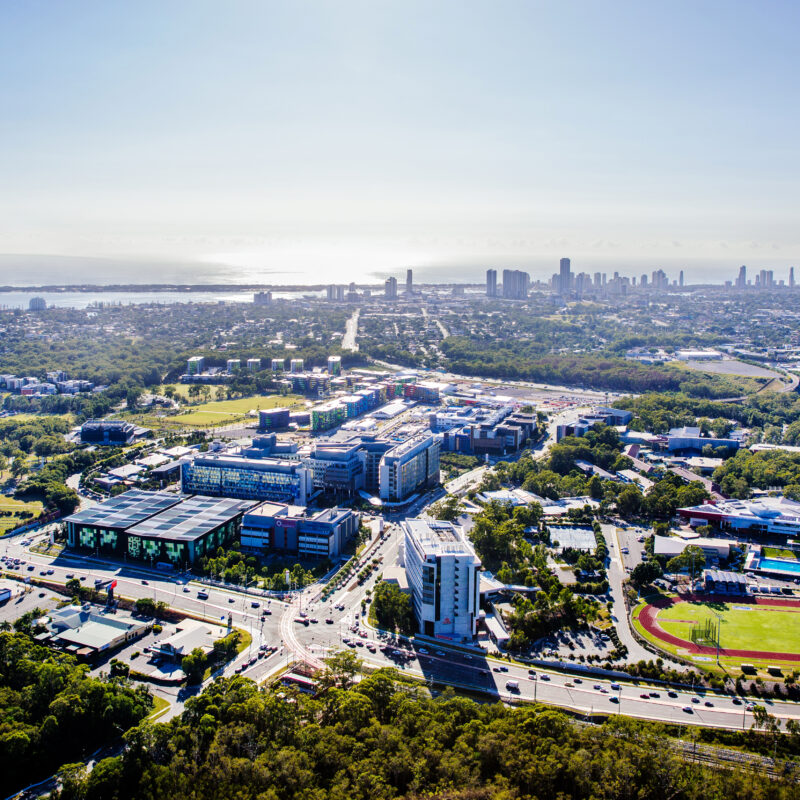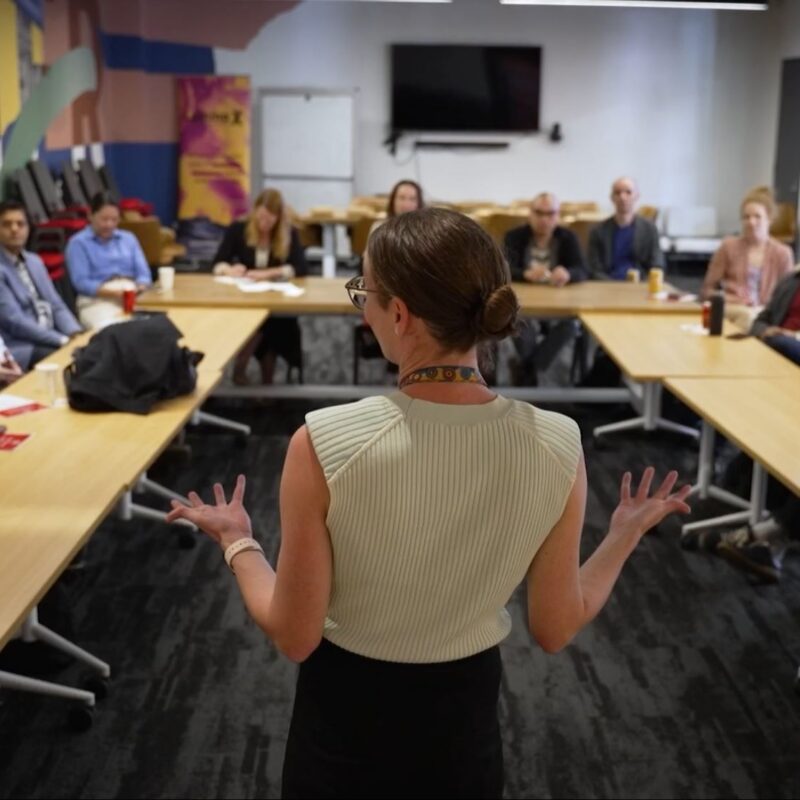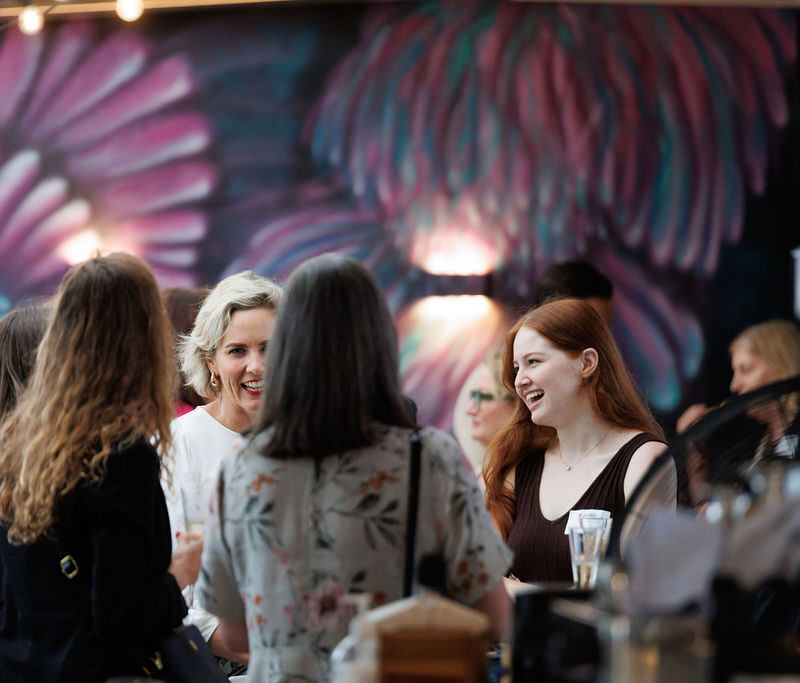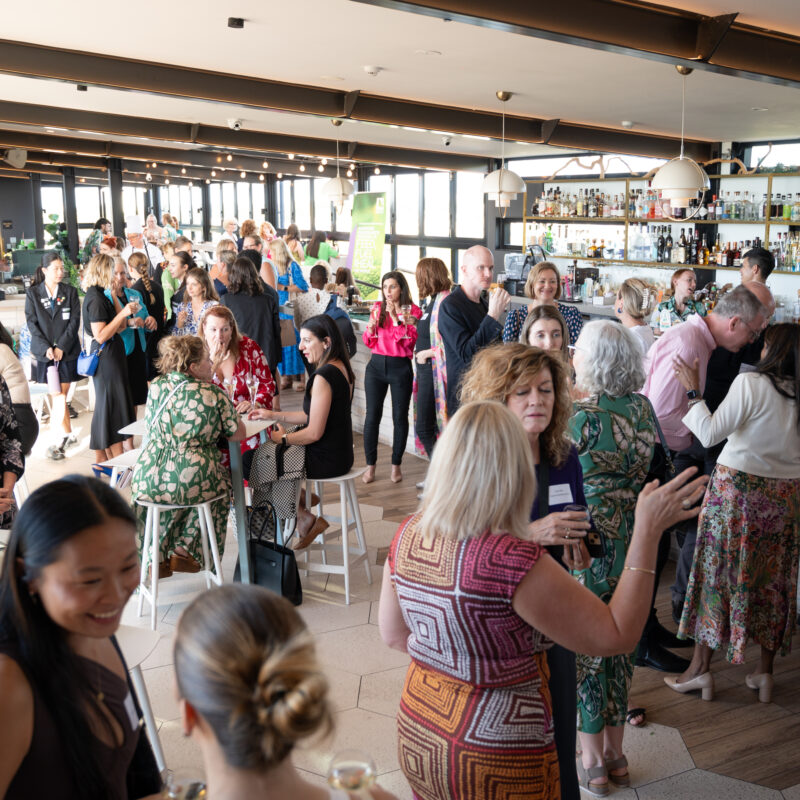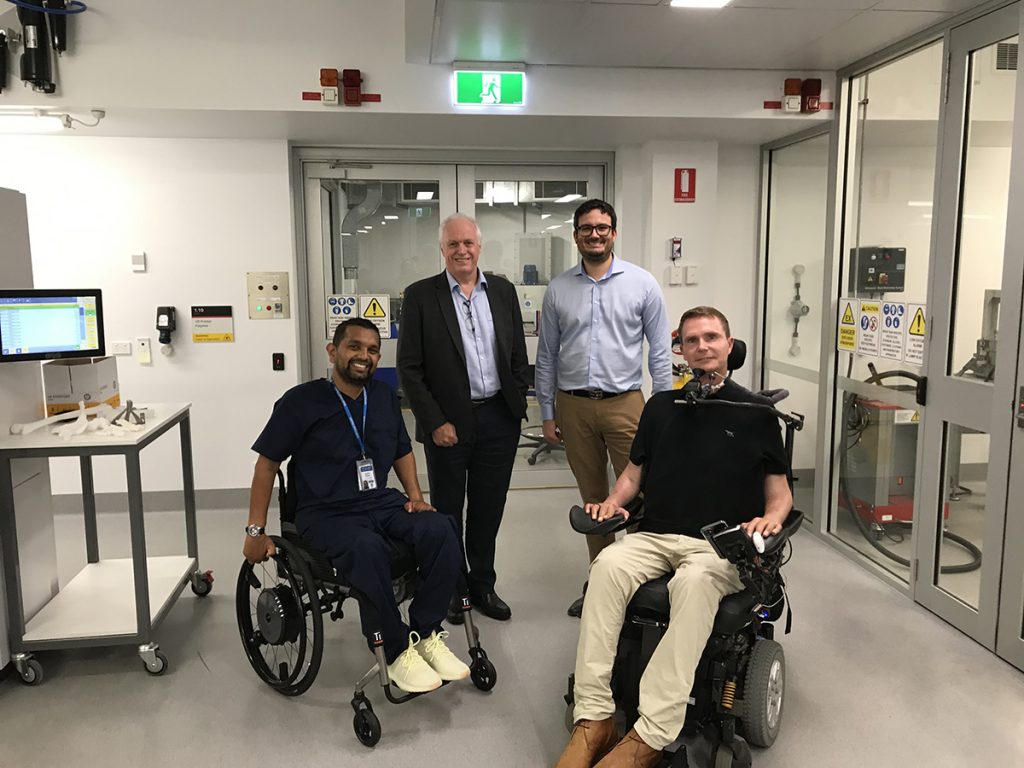
Inspirational quest for spinal cord injury cure
Ten years passed this January from the rainy night that Dr Dinesh Palipana’s life changed forever. And now, in the midst of a global pandemic, he’s finding hope. For the first time in the decade since the fateful car accident that left him a quadriplegic, he ‘thinks’ he felt some sensation in his trunk, thanks to the advanced rehabilitation technology he’s been co-developing as a Griffith University researcher, medical doctor and patient. And with his power of positive thinking, this dedicated disability advocate has already taken the first step towards a cure for spinal cord injury.
Dr Palipana’s story is familiar to many – as the face of Griffith University’s Remarkable Stories campaign, a hard-working emergency medicine doctor in the Gold Coast University Hospital’s busy ED, and one of the Gold Coast Health and Knowledge Precinct’s most positive, likeable people. He’ll share his story, his research and his truly remarkable positivity, as a special guest speaker for this year’s National Science Week event at the Precinct’s Cohort innovation hub (Thursday 20 August, 2020 – online via Zoom Livestream, 5-5.45pm)
“It’s was strange, but I’m sure there was some return of sensation,” Dr Palipana is incredulous, as he describes the feeling, literally, of sensing his trunk for the first time since his car crash.
He’s excited, of course, and optimistic not just for his own rehabilitation, but for the difference that he, fellow BioSpine chief investigator Dr Claudio Pizzalato, academic lead Professor David Lloyd and the rest of the team hope to make with their world-leading integrated neuro-rehabilitation technology.
But it’s still early days, and COVID-19 has slowed the project, so that Dr Palipana is so far the only patient trialing the novel personalised medicine system which brings together the most promising approaches to treating spinal cord injury in human history, and which last year secured a $2 million funding injection from the Motor Accident Insurance Commmission (MAIC).
“We are using thought control, electrical simulation, and drug therapy in an attempt to restore function in paralysis.” Read more here.
No regrets, lots of gratitude
“It’s been the hardest thing, but I don’t regret it, I’m not angry and it has definitely made me a stronger and better person,” Dr Palipana reflects on his spinal cord injury, and the challenging years since coping with his disability.
‘You don’t make a sword without putting it in the fire and beating it with a hammer’, is his signature philosophy.
And aside from his inspirational stoicism, he gets through life’s ups and downs through his remarkable gratitude – for his mother, friends, the ability to work, and the city of the Gold Coast that the Sri Lankan born doctor loves calling home.
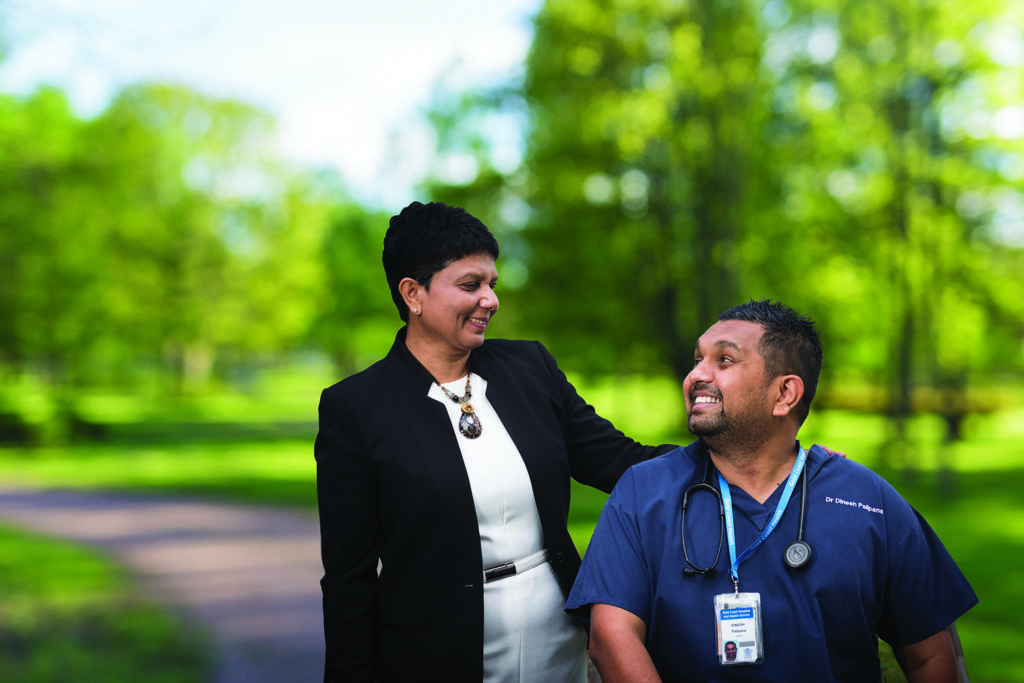
Career changes course
When 23-year-old Dinesh arrived at Griffith University to start his medical degree in 2008, he was already equipped with a law degree, which he says ‘sets you up for so many things’, and has undoubtedly helped him in his passion for disability advocacy.
He immediately felt he had made the right decision. “I knew that it was where I belonged. I knew I’d found my place in this world.”
After his accident it would be four years before he returned to Griffith to recast his dreams of being a doctor. The challenging time between car crash and return to university was punctuated by regular communication from the School of Medicine, and the supportive message Dinesh received never wavered: ‘Take your time and when you’re ready, we want you back’.
A beaming Dr Palipana graduated in 2016 as only the second quadriplegic doctor in Australia, and has been singing the praises of the university that helped shape him ever since.
“I still see barriers to career progression because of spinal cord injury – we need to get to the point where people are seen for their strengths”.
Dr Palipana’s path to employment as a doctor may not have been smooth, but he has found a home at Gold Coast University Hospital, where he was named 2018 Junior Doctor of the Year, and has now advanced to senior house doctor, working in one of the busiest emergency departments in Australia.
“What really gave meaning to all the challenges I overcame was when a patient with a significant disability told me he was glad I was treating him, because he knew I would understand his issues.”
Along the way he’s had some incredible opportunities – an internship at Harvard Medical school – “awesome, so collaborative, and they don’t think about disability, but inclusivity”, also provided the opportunity to meet an experienced collaborator on the BioSpine project.
He’s had many opportunities to speak, both in Australia and overseas; advocating for doctors with disabilities in India, the UK and US. At home, he’s the resident doctor for Gold Coast Titans teams with physical and intellectual disabilities and counts it as one of his favourite achievements.
And gratifyingly, he’s making a real difference in the policy agenda.
“One of the things that I’m most proud of is that we are really changing policies around medical education and medical practice.”
Push for patient centred technology and services
Central to the BioSpine team’s approach is patient-centred design.
“What is the point of making things if you remove the people you are making it for from the process? It’s a paternalistic approach and we are changing that,” says Dr Palipana.
He wants disabled people to be able to drive their own care, and while the NDIS does strive to put them in the driver’s seat, he’s pleased to have been invited onto the Australian Health Department’s COVID-19 consumer group committee, that is specifically considering the needs of disabled people in the time of a pandemic, when they are most vulnerable.
And he’s been on the front foot with advocacy since the virus struck, raising the contentious issue of healthcare rationing, as COVID-19 uncovered more prejudices against people with underlying conditions and disabilities.
“We realised there are swathes of vulnerable populations who identify with disabilities and have compromised physiologies,” he says.
Society grappled with questions about how ventilators could be rationed between people with disabilities and those without.”
While there are guidelines that discourage discrimination, they may not always help in the life-and-death decisions required when precious health resources are scarce, posing the critical question: should he automatically be disqualified from intensive care if he gets sick?
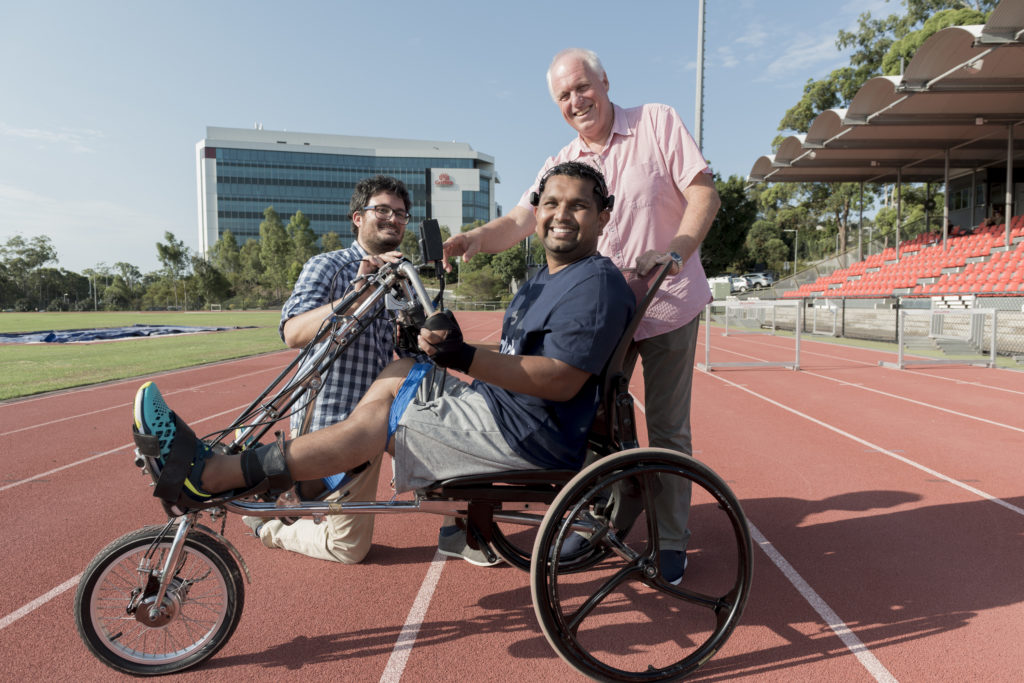
Science as a way of contributing to society
From someone who has already contributed so much, the message Dr Palipana wants to share broadly is one of engagement.
“I want to empower people to be engaged in science, especially medical science, because you can make such a contribution.
And it’s imperative for our nation not just to rely on our fortunate natural resources, but to build our capacity for science, to build a knowledge-based economy, to build a fairer society, to create a better post-pandemic future.”
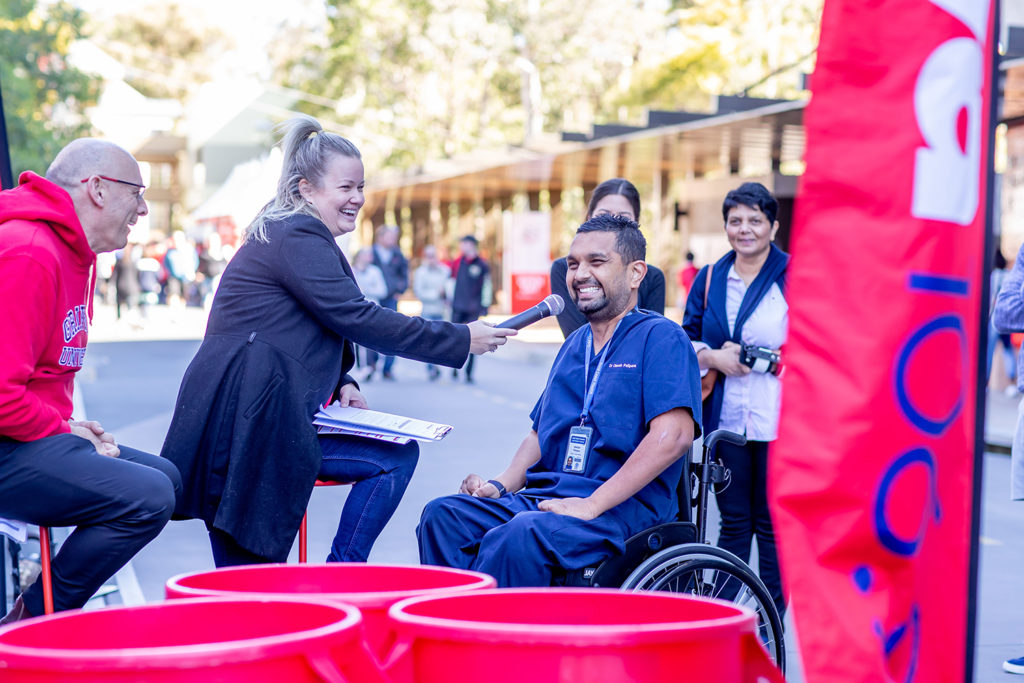
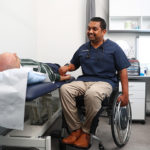
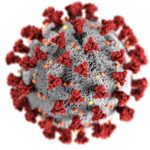
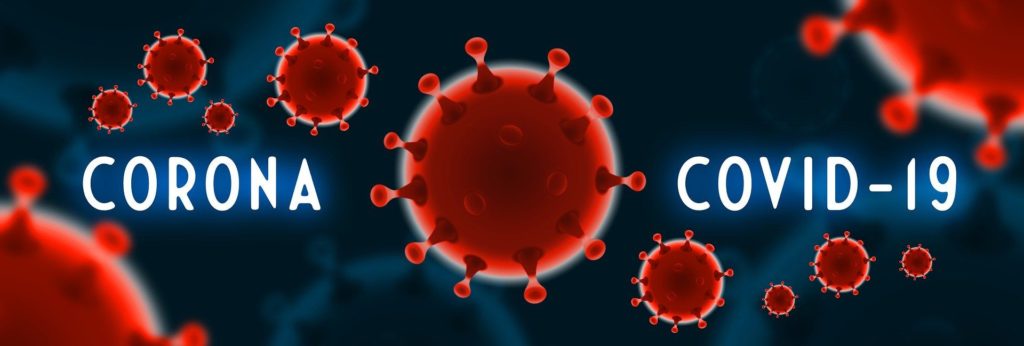
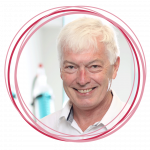 Researchers across Griffith University and within Gold Coast Health have responded in many ways to the challenges of COVID-19 – none more so than Professor Michael Good AO (above), a member of the National COVID-19 Health and Research Advisory Committee and chair of the working group on convalescent plasma therapy, a passive immune therapy he believes deserves support for Australian research and clinical trials.
Researchers across Griffith University and within Gold Coast Health have responded in many ways to the challenges of COVID-19 – none more so than Professor Michael Good AO (above), a member of the National COVID-19 Health and Research Advisory Committee and chair of the working group on convalescent plasma therapy, a passive immune therapy he believes deserves support for Australian research and clinical trials. Creativity is in the DNA of the team at our COHORT co-working and innovation space – even now that they’re back with a COVID-safe plan to operate their co-working space, meeting rooms and future events, they continue to increase their digital footprint.
Creativity is in the DNA of the team at our COHORT co-working and innovation space – even now that they’re back with a COVID-safe plan to operate their co-working space, meeting rooms and future events, they continue to increase their digital footprint.

